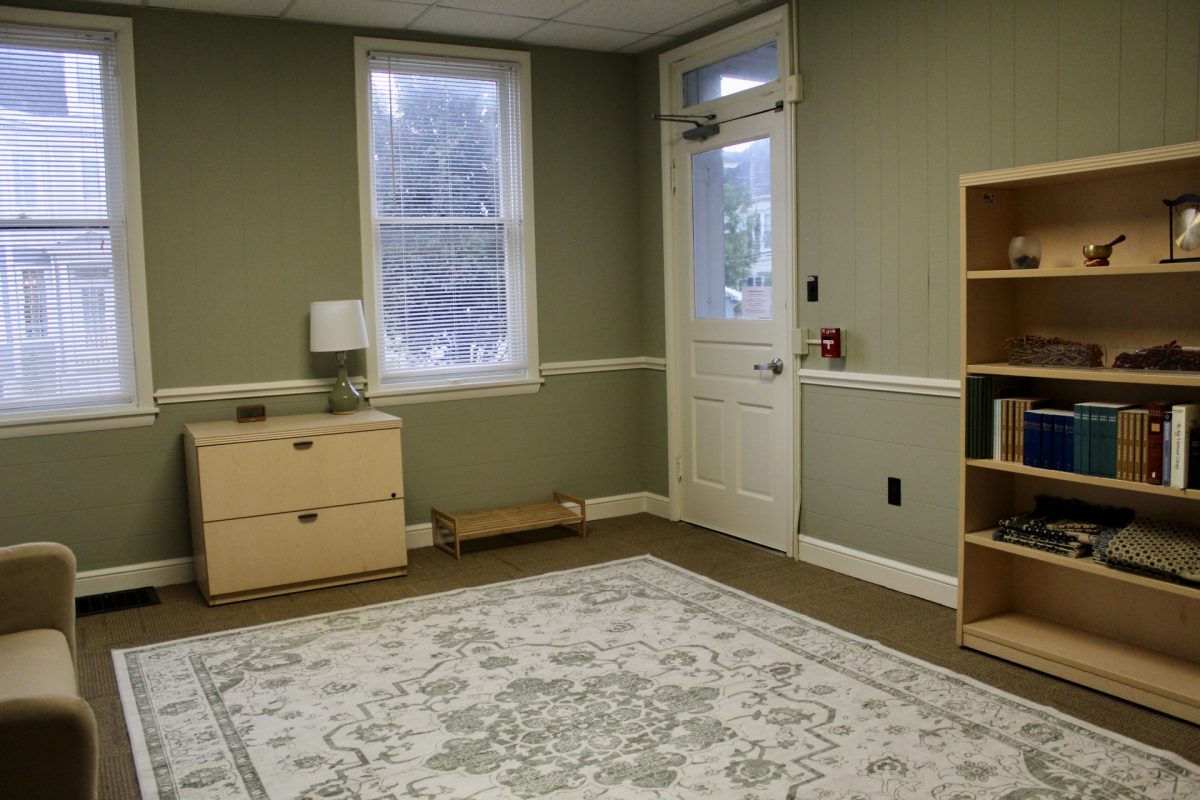The Department of History held this year’s Bell Lecture, presented annually by a member of the history faculty chosen by the History Majors Committee in honor of Dr. Whitfield J. Bell, a member of the Dickinson community for 75 years.
This year’s lecture, given last Tuesday, was by Professor Marcelo Borges, who focuses on the history of migration and Latin American history. He spoke about his most current project, which he has been working on with an Argentinian colleague, which builds on his past work, but broadens its scope to be an analysis of global migration and emotion from 1870 to 1970, synthesizing and interpreting how the two are intertwined. Borges has been working on the subject of migration for many years, but became particularly interested in emotions as well through his focus on letters between families.
Borges is analyzing the interaction between emotions and migration at the individual, familial, and societal level, particularly how societies have employed emotions in response to immigrants coming to their shores, in both positive and negative ways.
During the Bell Lecture, Borges focused on the concept of nostalgia, and how it has been applied to people and migrants in the past and has changed over time. Borges shared that in the 1680s, nostalgia was applied as a concept to the transported soldier’s longing for home when they fought in foreign wars. Nostalgia was used to explain solders’—who were a kid of migrant in their own right—physical maladies. There was the idea that they could be cured by being sent home. In many places, immigrants were admitted to asylums with the diagnosis of homesickness, making the word a very different concept than people use it today. Borges emphasized the necessity to acknowledge the term’s change in meaning over time to gain a more accurate or holistic understanding of the past, which can be quite challenging.
Borges emphasized that “nostalgia is a remarkable example of state power.” Much rhetoric has existed over time around emotions and migration, explaining, often xenophobically, why certain migrant groups were not suited for certain societies. Fear has been weaponized to get states to stop immigration, justified through a sense of “love” for a particular country and its future to justify keeping certain groups out.
The melancholia associated with nostalgia is present in many places, in particular Word War II literature among those who had been in camps, who expressed a desire to return home even despite the bd things that happened to them and the bad things they experienced there. Another example is Russian Jews who had fled violent pogroms in their home country.
He also discussed the experiences and feelings of migrants, such as migrant workers throughout time who have felt responsible for providing for their families still at home but must emotionally and psychologically navigate their new surroundings as well as their bonds with and communication with their families. Borges is also focusing on how migrants have seen themselves in relation to their new countries, and the need felt both to reinvent themselves and reclaim a place that has been stolen from them or they have left behind.



